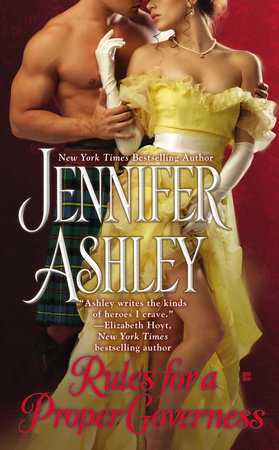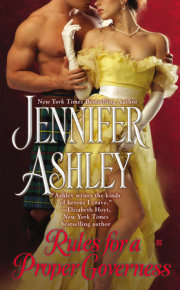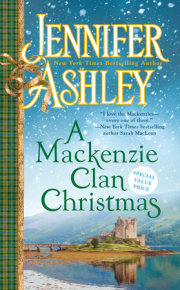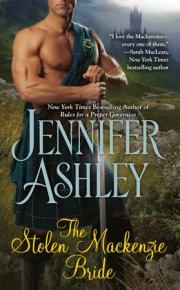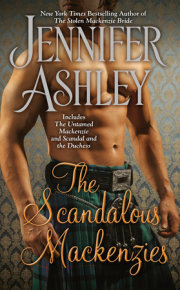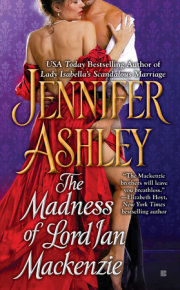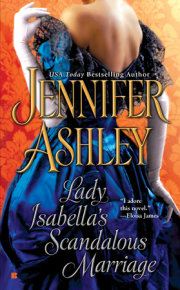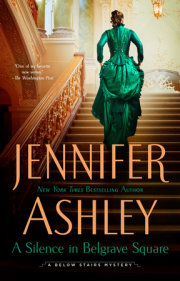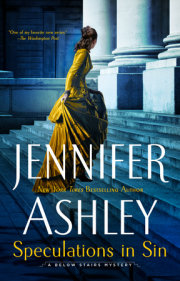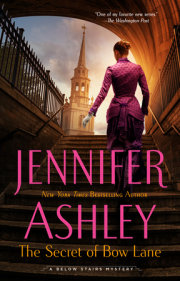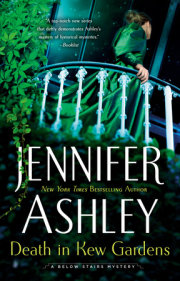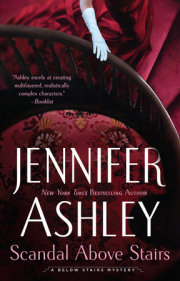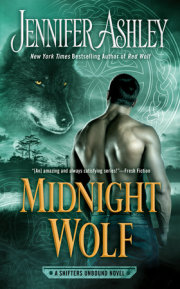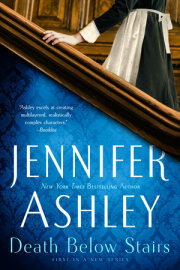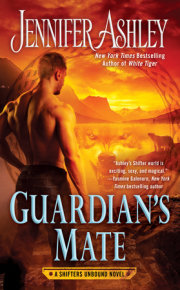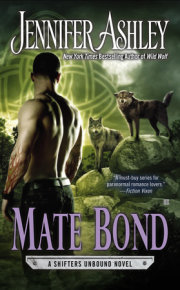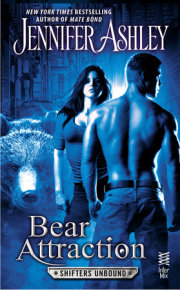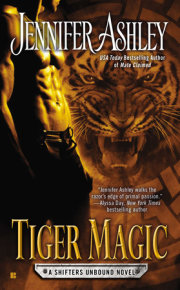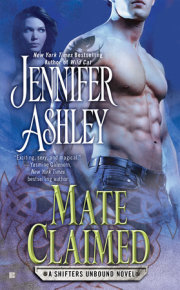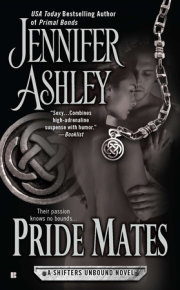Chapter 1
WINTER, 1885
His voice drew her, and Bertie wanted to hear more of it. She leaned forward in the balcony to watch the man standing upright and arrogant, one hand touching an open book on a table in front of him, the other gesturing as he made his argument.
The villains Bertie knew called the barrister Basher McBride, because Mr. McBride always got a conviction. He wore one of the silly wigs, but his face was square and handsome, and far younger than that of the judge who sat above him. A wilted nosegay reposed in a vase in front of the judge, both judge and flowers looking weary in the extreme.
The case had caught the attention of journalists up and down the country—the sensational murder of a lady by one of her downstairs maids. The young woman in the dock, Ruthie, had been accused of stabbing her employer and making off with a hundred pounds’ worth of silver.
Bertie knew Ruthie hadn’t done it. The deed had been done by Jacko Small and his mistress, only they’d set up Ruthie to take the blame for it. Bertie had known, had heard Jacko’s plans, but did the police listen to the likes of Roberta Frasier? No.
Not that Bertie was in the habit of talking to constables most days. She stayed as far away from them as possible, and her dad and Jeffrey, Bertie’s self-styled beau, made sure she did. But she’d tried for Ruthie’s sake.
Hadn’t mattered. They’d arrested Ruthie anyway, and now Ruthie would get hanged for something she didn’t do.
The handsome Basher McBride, with his mesmerizing voice, was busy making the case that Ruthie had done it. Ruthie couldn’t afford a defense, so she was here on her own in the dock, thin and small for her age, a maid who’d been in the wrong place at the wrong time. Bertie could only clench her fists and pray for a miracle.
Mr. McBride, despite his dire statements, had a delicious Scots accent. His voice was deep and rich, rolling over the crowd like an intoxicating wave. Even the bored judge couldn’t take his eyes off him.
Mr. McBride had broad shoulders and a firm back, obvious even in the black robes. He was tall, dominating all in the room, the strength in his big, bare hands apparent. He looked as though he’d be more at home out on a Highland hillside, sword in hand as he fended off attackers. One glare from those gray eyes, and his attackers would be running for their lives.
His accent wasn’t so thick Bertie couldn’t understand it, but his Rs rolled pleasantly, and his vowels were long, especially the Us.
“If your lordship pleases,” Mr. McBride said, his voice warming Bertie again, “I would like to call Jacko Small back to the witness box.”
Bertie swallowed, nervous. Jacko had already given evidence that he’d found the body in the sitting room of the London house, then seen Ruthie down in the kitchen, crying, with blood on her apron. The silver had been gone, and no one had found it, so Ruthie must have hidden it somewhere, hadn’t she? The police had tried to get its location out of her, but of course Ruthie hadn’t known, as she hadn’t stolen the silver in the first place.
The judge sighed. “Is it relevant, Mr. McBride? This witness has already told us his version of events.”
“One or two more questions, your lordship,” Mr. McBride said without hurry. “You will understand my reasons in due time.”
In duuui time. The vowel came out of his mouth with a round, full sound.
Jacko came back in, was reminded he was under oath, and faced Mr. McBride with all innocence on his face.
“Now, then, Mr. Small.” Mr. McBride smiled pleasantly, but Bertie saw a gleam in his eyes that was a cross between anger and glee.
Now what was he up to?
“Mr. Small,” Mr. McBride said smoothly. “You say you opened the door of the sitting room to find the lady of the house on the floor, her dress covered in blood. You’d been asked to refill the coal bin on your return from your day out and had gone up there to do so.” Mr. McBride glanced down at the notes on his bench. “That day was the seventh of July. The middle of the afternoon, in the middle of summer. Quite the warmest day anyone could remember, the newspapers reported. A bit too warm for a fire, wouldn’t you say?”
Jacko blinked. “Well . . . I . . . the nights were still nippy. I remember that.”
“Yes, of course. Bloody English weather. Begging your pardon, your lordship.”
People tittered. The judge scowled. “Please get on with it, Mr. McBride.”
“You say in your statement that you saw quite a lot of blood,” Mr. McBride said, not missing a beat. “On the sofa, on the floor, smeared on the door panels and on the doorknob.”
“’Sright.” Jacko put his hand to his heart. “Gave me a turn, it did.”
“So you fled the room and went down to the kitchen, where you saw the accused wearing an apron stained with blood. She says she got the blood on her because she thought she’d help out the cook by stuffing the chickens for dinner. The chickens were still a bit bloody, and she wiped her hands on her apron. Correct?”
“It’s what she said, yeah.”
“Now, I need your help, Mr. Small. I must ask you a very important question, so think hard. Was there any blood smeared on the doorknob of the door to the back stairs?”
Jacko blinked again. He obviously hadn’t rehearsed this question. “Um. I don’t think so. I can’t be sure. Don’t remember. I was, you know, in a state.”
“But you remember distinctly the blood on the doorknob in the sitting room. You were quite poetic about it.”
More titters. Jacko looked flustered.
What the devil was Mr. McBride doing? Bertie’s gloved hand tightened on the railing. He was supposed to be proving Ruthie did it, not that Jacko lied. Which Jacko had, of course, but how did Mr. McBride know that?
Besides, it wasn’t his job to expose Jacko. Bertie knew from experience that courtrooms had procedures everyone followed to the letter. It was as if Mr. McBride had stepped onstage and started playing the wrong part.
“Was there blood on the doorknob to the back-stairs door?” Mr. McBride repeated, his deep voice growing stern.
“Um. Yeah,” Jacko said. “Yeah, now that I recall it, there was. Another big smudge, like in the sitting room. I had to touch it to open it. It were awful.” A few of the jury shifted in their seats in sympathy.
“Except there wasn’t,” Mr. McBride said.
“Eh?” Jacko started. “Whatcha mean?”
“The door to the back stairs, or the green baize door as it is also known, had a broken panel. It had been taken away, since it was a quiet day, to be mended. There was no door that day, not for you to open, nor for the maid to smear blood on.”
“Oh.” Jacko opened and closed his mouth. “Well, I don’t really remember, do I? I was, watcha call it . . . agitated.”
“Though you remember in exact detail the placement of every item and every bloodstain in the sitting room. The accused says she didn’t see you at all that day, and never knew about her employer’s death until the police arrived. I’m going to suggest you went nowhere near the kitchen and never saw the accused. I suggest you left the sitting room and the house entirely, returned later, found the police there, saw them taking away the accused and her bloody apron, and came up with the story about seeing her.”
Jacko looked worried now. “Yeah? And why’d I come back, if I’d killed the old bitch?”
The judge looked pained. Mr. McBride’s eyes took on a hard light. “You knew that if you’d disappeared entirely, you’d be screaming your guilt. I suggest you left to dispose of the silver and returned as though you’d been gone all day. And never did I suggest, Mr. Small, that you committed the murder.”
Rustling and muttering filled the courtroom. The judge looked annoyed. “Mr. McBride, do I have to remind you that the witness is not on trial?”
“No, he’s not,” Mr. McBride agreed. “Not yet.”
Another round of laughter. Jacko’s face was shiny with sweat, although it was nippy in here on this winter day.
“I am finished with the witness, your lordship. In my summing up, I will be putting the case that what we have here is not a conniving young woman who killed her employer, smeared blood all over the room, and then remained quietly in the kitchen with an apron covered with the same blood—and, I might add, no time to dispose of the missing silver. I am instead going to put forth my belief that another person must have had much better opportunity, and strength, to commit the crime, and that we are coming dangerously close to a miscarriage of justice. Perhaps your lordship would like to retire briefly and prepare for my outrageous statements.”
The judge growled as laughter began again. “Mr. McBride, I have warned you about your behavior in my courtroom before. This is not the theatre.”
Oh, but it was, Bertie thought. Only the play was real, and the curtain, final. Mr. McBride knew that too, she sensed, despite his jokes.
“You are, however, correct that I would like to recess briefly to gather my thoughts,” the judge said. “Bailiff, please see that Mr. Small does not leave.”
The judge rose, and everyone scrambled to their feet. The judge disappeared through the door into his inner sanctum, the journalists rushed away, and the rest of the watchers filed out, talking excitedly.
Bertie looked over the railing at Mr. McBride, who’d sat down, pushing his wig askew as he rubbed the sunshine-colored hair beneath it. The animation went out of his body as the courtroom emptied, as though he were a marionette whose strings had been cut.
He glanced around and up, but not at Bertie. Mr. McBride looked at no one and nothing.
Bertie was struck by how empty his face was. His eyes were a strange shade of gray, clear like a stormy morning. As Bertie watched, those eyes filled with a vast sadness, the likes of which Bertie had never seen before. His mouth moved a little, as though he whispered something, but Bertie couldn’t hear what he said.
Bertie remained fixed in place instead of nipping off for some ale, her hand on the gallery’s wooden railing. She couldn’t take her eyes off the man below, who’d changed so incredibly the moment his performance had finished.
Mr. McBride didn’t leave his bench until the judge returned, and the courtroom started up again. Then he got to his feet, life flowing back into his body, becoming the eloquent, arrogant man with the beautiful voice once more.
The judge signaled for him to begin. Mr. McBride summed up his case so charmingly that all hung on his words. The jury went out and returned very quickly with their verdict about Ruthie, Not guilty.
Ruthie was free. Bertie had hoped for a miracle, and Mr. McBride had provided one.
After much hugging, Ruthie left Bertie and went home with her mum. Bertie found her dad and Jeffrey waiting for her outside the pub across the street. They were furious. Jacko was Jeffrey’s best mate, and Jacko had just been arrested for murder and taken away by the police.
“’E’s to blame,” Jeffrey said darkly, jerking his chin at Mr. McBride, who was walking out of the Old Bailey, dressed now in a normal suit and coat. Once again, Bertie noted how Mr. McBride had changed from a man who commanded a room to a man who looked tired of life.
The afternoon was cold, darkening with the coming winter night. Bertie rubbed her hands together in her too-thin gloves and suggested that her dad and Jeffrey take her into the pub and buy her a half.
“Not yet,” Bertie’s dad said. “Just teach ’im a lesson, Bertie. Go on now, girl.”
Girl, when she was twenty-six years old. “Leave him alone,” she said. “He saved Ruthie.”
“But got Jacko arrested,” Jeffrey growled. “Whose side are you on?”
“Jacko killed the woman,” Bertie said. “He’s a villain; he always was. I say good on Ruthie.”
Jeffrey grabbed Bertie by the shoulder and pushed her into the shadows of the passage beside the pub. He wouldn’t hit her in public—he’d take her somewhere unseen to do that—but his hand clamped down hard. “Jacko is my best friend,” Jeffrey said, his breath already heavy with gin. “You get over to that fiend of a Scottish barrister and fetch us a souvenir. We deserve it. The traitorous bastard was supposed to take Jacko’s part.”
Jeffrey’s grip hurt. Bertie knew if she protested too much, both Jeffrey and her dad would let her have it. But she couldn’t do this.
“That fiend of a Scottish barrister is very smart,” she argued. “He’ll catch me, then I’ll be in the cell with Jacko, waiting to go before the magistrate.”
Bertie’s dad leaned in, his breath already reeking as well. “You just do it, Roberta. You’re like a ghost—he’ll never know. And if he does see you, you know what to do. Now get out there, before I take my hand to you.”
They weren’t going to leave it. In their minds, Mr. McBride was the villain of the piece and deserved to be punished. If Bertie refused, her dad would drag her away and thrash her until she gave in. If Mr. McBride went home while Bertie was taking her beating, her dad would make her wait here every afternoon until Mr. McBride returned for another case.
Either way, Bertie was doing this. One way would simply be less painful than the other.
Bertie jerked free of Jeffrey’s hold. “All right,” she snapped. “I’ll do it. But you’d better be ready. He’s no fool.”
“Like I said, he’ll never see ya,” her dad said. “You’ve got the touch. Go on with you.”
Bertie stumbled when her dad pushed her between the shoulder blades, but she righted herself and squared her shoulders. Taking a deep breath, she walked steadily toward where Mr. McBride stood waiting, his sad face and empty eyes focused on something far, far from the crowded streets of the City of London.
Sinclair McBride pulled his coat close against the icy wind and drew his hat down over his eyes.
Remember Sir Percival Montague, Daisy? he asked the gray sky. Well, I potted him good today. Old Monty was nearly rubbing his hands, wanting to pronounce sentence of death on that poor girl. Bloody imbecile. She was no more guilty than a newborn kitten.
The sky grew darker, rain coming with the night. So damnably cold here, not like the blistering heat of North Africa, where Sinclair had done his army time. His younger brother, Steven, was always trying to talk Sinclair into traveling with him—Spain, Egypt, back to Rome at least, where winters were balmy.
But there was the question of Andrew and Caitriona, Sinclair’s very interesting children. Sinclair couldn’t bring himself to foist them on Elliot and Juliana while he traveled the world. His brother and sister-in-law were starting their own family, their own life, and needed time alone. Take them with me? Sinclair had to smile. Wouldn’t that be an adventure?
Sinclair imagined his two terrifying bairns on trains, carriages, carts, all the way to Italy. No, not the best answer.
Thinking about Andrew and Cat helped him avoid the one thought Sinclair had been trying to banish all day. Now as he stood in the cold, waiting for his coachman to bring the landau, the thought came unbidden.
Seven years to this day you left me, Daisy.
Margaret McBride, Maggie or Daisy to those closest to her, had died of a fever that threatened to take Sinclair’s children as well. Seven years ago today.
My friends and family expect me to move on, can you believe it? But they’ve not had the loves of their lives ripped away from them, have they? They wouldn’t say such bloody daft things if they had.
“Moving on” sounded like forgetting all about Maggie, his wife, his lover, his helpmeet, his best friend. And I’ll never do that.
Maggie didn’t answer. She never did. But it didn’t matter. The comfort Sinclair drew from talking to her, out loud or inside his head, was some days the only thing that kept him sane.
When you’re ready for me to move on, I know you’ll tell me. Another gust of wind had Sinclair grabbing for his hat and clenching his teeth. Where the devil was Richards with the coach? I trust you, Daisy . . .
The crowd was thick, everyone in London going home for the night. Sinclair held on to his hat as he was buffeted. Richards was taking a damn long time. Sinclair wasn’t usually in a rush, but tonight was bloody cold, and the rain was starting to come down in earnest.
A shove and a thump sent Sinclair a swift step forward. A young woman had stumbled into him, her shoes skidding on the wet pavement. She struggled to keep her feet, and Sinclair put a steadying hand under her arm.
“Easy now, lass,” Sinclair said.
She looked up at him . . . and everything stopped. Sinclair saw a dark hat covered with bright blue violets, then eyes of the same blue—clear and warm in this swirl of gray. The young woman’s face was round, her nose slightly tip-tilted, her red lips curving into a charming smile.
He’d never seen her before, and at the same time, Sinclair felt a jolt rock him, as though he’d been waiting for years for this encounter. The two of them stood together in a warm stillness, removed from the rest of the world as it rushed around them.
“I’m that sorry, mister,” the young woman was saying. “Some bloke put his elbow right in me back, and me feet went clean out from under me. You all right?”
“I’m whole.” Sinclair forced himself back to the cold of the real world, and studied her with his professional assessment, honed by a long career of watching criminals. She wasn’t a street girl. Game girls had a desperate look, and were too eager to be seductive. Want me to make ya feel better, lamb? was the cleanest of the offers Sinclair had gotten as he strode through London’s streets.
This young woman was working-class, probably on her way home after a long day’s drudgery. She wasn’t dirty, but the sleeves of her velvet jacket were frayed at the cuffs, her gloves threadbare and much mended. Poor, but making the best of it.
Still, she didn’t have the downtrodden appearance many factory women had. Her smile was sunny, as though telling the world things could be better if given a chance.
“Well, that’s good,” she said. “’Night, mister. Sweet dreams.”
Another smile, and in the sudden flare of an approaching light, all Sinclair could see were her eyes.
Deep and blue, like the depths of the ocean. The Mediterranean could be that color. Sinclair remembered southern Italy and its shores from his leave time, when he’d been in the army and traveling the world. He’d known peace there.
This young woman with her blue eyes was beautiful, with a beauty that went beyond her shabby clothes and working-class grin. She was a vision of light in the darkness, in a place where darkness had lasted too long.
Someone else shoved him, and Sinclair turned to step out of the way. When he looked back for the young woman, she was gone. He blinked at the empty space where she’d been, then lifted his gaze and spied her slipping through the crowd, the violets on her hat bobbing.
The detail of her ridiculous hat kept Sinclair from believing he’d dreamed her. But of course he hadn’t. Visions of beautiful women were of golden-haired sirens with perfect bodies, strumming on lyres perhaps, luring men to their dooms. Sirens didn’t have lopsided smiles and plump faces, and blue eyes that pulled Sinclair out of his despair, if only for a moment.
But she was gone now, vision or no, and Sinclair needed to go home. Andrew and Cat would have locked their new governess into the cellar by now, or accidentally burned down the house. Or both.
They didn’t mean to be bad, his little ones . . . Well, mostly they didn’t. One of the governesses had claimed that Andrew was possessed by the devil. She’d even offered to contact a priest she knew who could have him exorcised. That governess hadn’t lasted more than an hour.
A clock struck. Sinclair, out of habit, reached for his watch to compare the time. His watch always ran a few minutes fast and having it repaired made no difference. Buying a new watch was out of the question, because Daisy had given him this one . . .
Which was no longer in his pocket.
Reality rushed back at Sinclair with an icy slap. His gaze went to the violet-covered hat as it disappeared around a corner.
Good God, how stupid had he been? He hadn’t pegged the young woman as a pickpocket, because pickpockets usually didn’t stop for a chat. They stole and slipped away before the victim was aware.
Her bad luck someone had tripped her. Or had it been luck?
All this went through his head as Sinclair whirled around and strode after the woman, his feet moving faster and faster as he went. Gone was any thought of finding his coach and going home. Nothing mattered but getting that watch back. Sinclair would find the young woman and take it away from her, even if he had to chase her to the ends of the earth.
Chapter 2
Basher McBride was coming after her. Bertie had twigged he was much too smart not to notice if she lifted his timepiece, but she’d told herself not to be a coward. Now she knew her folly, because he was chasing her, and he’d have her nicked in a heartbeat. She should have stuck with taking his handkerchief and been done.
But she’d wanted Mr. McBride to look at her. To see those eyes, gray like the sky before dawn, to hear his rumbling voice. She’d warmed all over when the syllables had poured onto her—Easy now, lass.
She’d lingered too long to admire him, and now he was coming. Bertie picked up her pace and dashed around another corner. She knew London better than most, and she could lead him on a merry chase. And if Bertie couldn’t shake him . . . well, she’d know where to run.
She scooted into the backstreets behind the grim walls of Newgate, ducking into the warrens and winding streets, lanes so narrow they blotted out the last streaks of light in the sky.
These passages were filled with trash, rats, and layabouts. A few of the men lolling in their gin-soaked stupor tried to grab Bertie’s skirts as she went by, but Bertie expertly twitched away from them and kept on running.
Bertie risked a dash across Aldersgate Street and back into the narrower lanes beyond. She jumped over a vagrant who looked to be far gone on opium, her bootheels clicking on the hard-packed street.
And wasn’t it just her luck? The Scottish bloke was keeping up with her. A swift glance behind her as she rounded a corner showed McBride running after her, his body moving with athletic competence as he ducked and swerved around carts, dung, and vermin, both human and rodent.
Bertie’s breath was coming fast, her corset too tight to keep this up for long. Blast the man. He should be giving up by now, toddling off to his comfortable home in Mayfair or Belgrave Square or wherever he laid his pristine head to rest.
She remembered how he’d stood straight and tall in front of the judge, taunting the old misery, turning the verdict around to surprise them all. Basher McBride’s arrogance had rolled off him, with even the judge grudgingly conceding to him.
But then, as soon as his performance was over, all that arrogance drained out of him, leaving Mr. McBride an empty shell. Until now, of course. His energy was back, focused on chasing Bertie and dragging her off to a constable.
Not that, never that. Bertie didn’t particularly want to finish her life at the end of a noose. The jury might be sympathetic that Bertie was forced to pickpocket by her father—if they believed her—but that would only mean she’d be transported across the ocean to someplace she knew nothing about or locked up in a grim and terrifying prison.
She should have been able to slip away from him by now, but Mr. McBride was keeping her in sight, whichever passage she took. Bertie knew she’d have to lure him to The Trap, whether she liked it or not, or she’d never get away from him.
That’s how she thought of it—The Trap—with capital Ts outlining the jaws of it. No one escaped it, not easily anyway. Mr. McBride was smart—he’d run the other way as soon as he saw what was what, and leave Bertie alone.
“Oi!” she shouted when she was within three feet of the place. “It’s Bertie! I’m coming in!”
A door in a squalid wall in a dark alley swung open, and Bertie leapt over the doorsill. She swept up her skirts as she landed, careful not to turn her ankles in the rubble.
Beyond the door was an empty space where a house had stood, pulled down or fallen down long ago. The lot was surrounded on four sides by other buildings that soared five and six stories to the sky. No windows faced the place, nothing to reveal the secrets of the inner emptiness. The space was lit right now with a fire built in the remains of an old stove, and with lanterns of the men and boys who liked to gather here.
The Trap was to be used in dire emergency, when a pursuer became too keen or bullies from another neighborhood strayed too close. The men and boys who made The Trap their haven were usually armed, usually drunk, and always ready to have a go at whoever was mad enough to come through the door.
Bertie fled through the lot, which was strewn with stones and broken bottles, skirting the pile of old rubbish in the middle. A smaller door led out the other side to another passage, where Bertie could slip away and go home.
She turned around to take one last look at her handsome Mr. McBride, to glimpse him again before he sensibly fled.
Except, he wasn’t sensibly fleeing. Mr. McBride came on inside, firelight shining on his light-colored hair, his hat gone who knew where. He showed no fear about the toughs who were converging on him, and when he spotted Bertie on the other side of the lot, he roared, with a voice that rang like a warrior’s, “Stop her!”
The toughs blinked, not used to victims who didn’t scramble away from them in terror. Mr. McBride started around them, straight for Bertie. The lads came out of their shocked state by the time McBride was halfway past the mound of junk, then they struck.
“Aw, bloody hell!” McBride’s rich Scots rang out, and he grabbed a rusted iron bar from the pile. Before Bertie’s stunned eyes, Mr. McBride turned to face the onslaught and started fighting back.
The youths and men charging him had knives, clubs, or coshes. Mr. McBride parried their blows, thrusting and beating at them as they beat on him. Iron rang against steel, and one of the youths cursed as his knife went flying. Mr. McBride had the advantage against the knives, having chosen a bar long enough to keep them back. When they figured out how to get under Mr. McBride’s reach, however . . .
They were going to kill him.
These toughs were thieves, murderers, or the sons of such. They’d killed before, wrapping up a body and tipping it into the Thames, with the police none the wiser. Never mind that Mr. McBride was obviously a toff in his fine clothes—they’d kill him, strip him, divide up the spoils, and go for a gin.
Why the devil didn’t he just run?
Bertie came pounding back to him. She dove around the flailing bars, earning her curses from the youths yelling at her to get out of the way, and closed her hands around Mr. McBride’s arm. She found beneath the expensive cloth strength that matched the iron bar he wielded. Mr. McBride started to shake her off, but Bertie dug deeper.
“This way,” she shouted. “Run!”
“Get out of it, girl!” one of the toughs yelled. “Fair game.”
“No, you leave him be! Come on.”
She jerked at Mr. McBride, who finally saw wisdom and came with her. The lads, enraged she was depriving them of their fun, poured after them. Bertie ran out the narrow door on the far side, jumping over the sill to the street. Mr. McBride had to turn and fight at the last moment, buffeting back two lads who’d grabbed his coat. The coat tore, but stayed on, and McBride swung away and followed Bertie.
Bertie slammed the door. She grabbed the iron bar from Mr. McBride’s hands and wedged the door shut, though she knew it wouldn’t hold for long, and the lads could always go around the other side.
She seized him by the sleeve and started running. McBride ran with her, his strides strong.
It wasn’t long before Bertie heard the youths coming. A few would give up, losing interest, but some would be determined. Jeffrey’s mates loved a good fight, and they’d want to divide up the spoils they found on Mr. McBride.
“This way,” Bertie urged as she dove around a corner.
There was one place in all of London Bertie could go. No one else knew about it but her—not her dad, not Jeffrey, not her own mates. Taking Mr. McBride there was a risk—he could have the constables raid it when she let him go—but maybe it would be worth the sacrifice. This courageous, handsome Scotsman didn’t deserve to be beaten to death by East End thugs.
Bertie ran for the end of an alleyway that looked as though it went no farther. Mr. McBride started to argue, but Bertie put her finger to her lips and pulled him around a hidden corner, then down a slippery set of stairs and through a noisome passage. Finally, Bertie squeezed into a space that led between the backs of buildings, corners poking out and seeming to block the way. Bertie had discovered long ago that a lithe young woman could push through here and find a refuge.
Mr. McBride grunted a bit as he struggled through the narrower parts, then popped out like a cork behind Bertie as she opened a half-size door and ducked through. This door had led to an old scullery and kitchen for a house that had once been large and fine. But the room had been walled off long ago as the houses had been changed, pulled down, or rebuilt, and this corner of the cellar was lost and forgotten.
“Mind your head,” Bertie said.
At the same time she heard a thump and Mr. McBride growled, “Thank you, lass. Very timely.”
They went down a set of stairs in the pitch dark, Mr. McBride with a heavy hand on Bertie’s shoulder. “Seventeen of ’em,” she said, and started counting off.
Mr. McBride’s hand was firm, spreading heat beneath her worn velvet coat and wool bodice. Strong too, his fingers blunt and gripping hard.
At the bottom, they went through another door, then Bertie told him to stay put while she groped for the matches she kept on a shelf and started lighting lamps. She had three lamps down here now, which threw a rosy glow over the crumbling bricks and fallen beams that littered the triangular room.
A pile of cushions, carefully formed into the approximation of a sofa, stood against the most solid wall. Bertie had covered it with shawls and blankets, and set up a small folding table near it, strewn now with newspapers and magazines she’d managed to smuggle down here. The passage above was too narrow for her to bring in much furniture, but she’d made the place as cozy as she could. She’d carried down small rugs over the years, overlapping them to keep her feet off the cold, damp floor.
Mr. McBride remained in place by the door until Bertie’s lights strengthened. She’d need more kerosene before long, she saw.
The large man was out of place down here, that was for certain. His head touched the ceiling and he had to duck under the few beams that remained. He looked around the room in wonder, then his gray gaze landed on Bertie and pinned her as hard as he’d pinned Jacko in the dock.
“Are ye mad, lass?” he asked. “You stay down here? This ceiling could fall upon you any second.”
Bertie shivered as his rumbling, delicious voice filled the space. “Hasn’t in sixteen years,” she said stoutly. “And probably stood up a long time before that. Solid houses in this part of London.”
“Whichever part it is,” Mr. McBride said, half to himself. “Why’d you save me from those lads, woman, when ye’d led me to them in the first place? Why not let them beat me to a bloody pulp?”
Bertie folded her arms, spending a moment letting his Scottish consonants and vowels flow over her. “Well, you were supposed to run away, weren’t you?” she asked. “You thought you could take on eight street toughs by yourself? You have to be daft as a brick.”
“No, I wanted my watch.” Anger flared anew in his eyes, never mind that he was down here at Bertie’s mercy with no idea where he was, no help at hand. But he was the one in command, Bertie knew. Not her.
Mr. McBride pointed a strong finger at her. “Which you stole, right out of my waistcoat while I stood gawping. Give it back to me, and I’ll say nothing.”
Sinclair watched the young woman’s face flush in the candlelight, her guilt pure and simple. She swallowed and took a step back, rubbing her arms. She still wore the hat with the absurd violets, which was now hanging half over her right ear.
“Give me the watch, and I’ll leave you be,” Sinclair said, trying to gentle his voice. “No constables, no dock, though you are a bloody little tea leaf.”
She didn’t look impressed he knew rhyming cant: Tea leaf—thief.
“Why’d ya help Ruthie?” she asked.
Sinclair had difficulty catching his breath. It was close down here, the biting wind shut out. It took him a moment to realize that by Ruthie she meant Ruth Baxter, the kitchen maid who’d stood in the dock at the Old Bailey not an hour ago. Already the details of the trial were fading, a trial that would be put down as a loss to him, but Sinclair didn’t care.
“Miss Baxter was innocent,” he said. “Why should she go down for it?”
“’Cause you’re a barrister, hand-in-glove with the judges.”
This young woman had a lot to learn about the common courts. Old Monty and Sinclair had been butting heads since Sinclair had first put on a wig. “Miss Baxter couldn’t afford a defense. I knew she was innocent when I looked at her, and I knew Mr. Small was guilty. What does this have to do with my watch?”
“Well, Ruthie’s a pal of mine, ain’t she?” The young woman’s eyes were deep blue in the candlelight. “Thank you.”
“So, you decided to show your gratitude by pinching my watch and leading me into the arms of your ruffian friends?” He made a noise of disbelief. “If that’s your method of thanking a man, I’d hate so see ye when you’re annoyed with him.”
She didn’t smile. “I told ya, you were supposed to run. They’d have gutted you. What were you thinking? You should have just let it go.”
His temper splintered. “Why the hell should I? It’s my watch. My wife gave it to me.”
The young woman took a step back as Sinclair’s voice rose. “Yeah? You’re a rich bloke. Have her buy you another one.”
“I cannae, can I?”
“Why not?”
“Because she’s dead!”
The words rang against the low ceiling and the uncaring stones, and suddenly, Sinclair couldn’t breathe at all.
He’d never, not even the day she’d slipped away, declared flatly that Daisy was dead. Sinclair shied from the word. He’d said passed, left him, was gone. Dead meant too much finality, it meant dust and no return.
Sinclair struggled for air. “She’s . . .”
He felt wetness on his face. Bloody hell. He hadn’t wept either. Not really. To weep for her meant she was never coming back.
“She’s . . .”
The world rushed around him, spiraling down into a single point, stifling. Blackness filled his vision, a pressure in his ears grinding out his strength. His knees were bending, and a void opened to pull him inside . . .
He blinked and found himself half lying, half sitting across the cushions piled on the floor. The young woman sat beside him, her hat gone to reveal rich dark hair, worry on her face.
“You all right, mister?”
This was the second time she’d asked him that tonight, as though sweetly concerned. She was a thief, had murdering friends, had brought him to this hole only God knew where to do God only knew what, and yet she asked with anxiety whether he was well. She’d dragged him to this sofa, he realized. Sinclair must have fallen nose-first on the floor, and she’d pulled him to the cushions and made sure he woke up.
“Damn it, woman.” Sinclair put his arm behind his head and glared at her. “What am I to do with you?”
She stared at him in wide-eyed contemplation for another second or two, then she leaned swiftly to him and kissed him on the mouth.
Chapter 3
Sinclair’s breath went out of him again. He was surrounded by her lush warmth, her wool skirt falling over his legs and thighs, her bosom pressing his chest through his coat. The tip of her nose brushed his cheek, her lips soft on his mouth.
The kiss was unpracticed, even clumsy, telling him far more certainly than anything else that she was an innocent. She had no idea how to kiss a man, no idea how to part her lips to let him take his pleasure. And yet her kiss was welcoming, erotic, a taste of desire Sinclair couldn’t ignore.
He found his hand stealing to the back of her neck, moving under her heavy braid, pressing her closer. Sinclair felt her start of surprise as he pulled her to him, then her body responded. She closed her eyes, shutting out the lovely blue, as she flowed into him and kissed him back.
Sinclair’s arousal roared to life, the part of his body he tried to neglect becoming achingly stiff.
Why not? This young woman was lovely, willing, had brought him here. If she wanted to rob him of everything when they were done, so be it.
Sinclair could lay her on this couch, rid himself and her of bothersome clothes, and drive into her. It wouldn’t take long, and for one glorious moment, Sinclair could lose himself in the mind-blanking palliative of coupling.
The young woman made a faint noise in her throat. Sinclair realized he’d started shifting to take her down to the couch.
The noise snapped him back to awareness. What was he doing? She was innocent—at least of bodily passions. Other men might not care, deciding that the kind of woman she was and where she lived gave them the right to take her body, but Sinclair could never be that callous.
He let her go abruptly and sat up. She blinked at him from where she’d slid down on the cushions, delightfully mussed and not calming his hardness one bit. She watched him a moment longer then gave him a shy smile.
Shy. Not coercive or coy—she wasn’t selling herself for the watch. Sinclair had no idea why she’d kissed him, but it hadn’t been because she’d sought favors.
Under his scrutiny, the young woman’s face flamed. “Now you’ll be thinking me a tart,” she said, sitting up and brushing back a lock of hair. “But I just wanted to kiss you, all right?”
Sinclair had wanted to kiss her. He still did. “I told you, I’m not a judge.” His arousal continued pounding, wanting release, very unhappy he’d let her go. “The only thing I know about you is that you’re a talented pickpocket, and you’ll be giving me back my watch.”
He held out his hand, amazed it was rock steady, his tight leather gloves whole even after the fight in the abandoned lot. The young woman eyed his palm in trepidation while she chewed on a corner of her lip.
She shouldn’t do that. The nibbling made her lip red, made Sinclair remember her lips against his, spiking his need to taste them again.
“The thing is, Mr. McBride,” she said, oblivious to his torment. “If I go back home without something from you, my dad will beat me rotten. I’d rather he didn’t, if you don’t mind.”
Sinclair’s focus returned, her words making his anger rise. “Why should he beat you?”
“He’s put out because you got Jacko arrested. He sent me to teach you a lesson.”
“Did he, naow?” He heard the broad Scots come out of his mouth, as it always did when he grew enraged. “Tell me who your father is, and he’ll be in Newgate before the night’s out.”
She was already shaking her head. “I don’t think I’ll do that.” She dipped her hand into a pocket in her skirt and pulled out the familiar shape of Sinclair’s watch. “I have to say, it’s a fine piece.”
“I know it is.” In one swift move, Sinclair reached for the watch and yanked it from her grasp.
“Oi,” she said, indignant. “You . . .” She glared at him, outraged, but with fear behind her anger.
Sinclair let out his breath in relief at the weight of the watch in his palm. The watch was intact, all as it should be.
He believed her when she said her father would beat her if she didn’t bring something home to him. Men in this part of London often sent their sons and daughters out to steal for them, or their daughters to walk the streets. These children had nowhere to go and no one to turn to, and many of them thought it fine to go out and earn some dosh to help the family.
This young woman was a bit older than many of the game girls, but if she still lived at home with her father, taking care of him, he’d have the upper hand. Englishmen set such store on women having little power and money, living only to serve the males of the family. Sinclair could never understand why—he’d seen so much grief come of it.
He slid the watch into his waistcoat pocket, keeping a close eye on the young woman’s hands as he did so. She’d taken what she’d wanted when he’d been oblivious on the street, and there was nothing to say she wouldn’t try again.
Sinclair pulled out a coin and held it toward her. “Will this assuage your bastard of a father and make him spare the rod?”
The woman’s blue eyes went wide. Sinclair clasped a gold sovereign between his fingers, enough to pay for an East End family’s meals for a long while.
“You really are a madman,” she said in awe.
“Take it,” Sinclair said. “Before I change my mind.”
The young woman stared at the coin for a long moment, but she had no greed in her eyes. Amazement, yes, and wariness, but no greed. She knew she’d be handing over the sovereign to her father, keeping nothing for herself.
“What’s your name?” Sinclair asked her.
She gave him a sudden smile, one that lit up her eyes and made her beautiful. “Now that I don’t think I should tell you. Even if you were good to Ruthie an’ all.”
Fair enough. She reached for the coin, but Sinclair pulled it back. The young woman made a noise of protest, and Sinclair shook his head.
“This is also your fee for taking me out of here and leading me back to a street I can recognize. Can you do that?”
“’Course I can.” She looked proud. “No one knows London better than me.”
Sinclair believed her. She’d brought him across the city and into the East End without faltering, ducking around dark corners with complete confidence.
Sinclair took her hand in its worn glove and pressed the gold coin into it. “Show me, then.”
Another sunny grin, and she swung to her feet with energy, her wool skirts brushing his legs. Sinclair started to rise with her, still dizzy from the chase, her kiss, the closeness of the room, and whatever noxious gas was down here that had made him light-headed. This place really wasn’t safe for her.
The young woman steadied him on his feet, then blew out the lamps around the room, plunging them into gloom.
Before Sinclair could wonder whether she’d simply leave him there in the dark, ripe for the plucking, her warm hand found its way into his. “Come on, then,” she said.
Bertie pulled Mr. McBride out into the dark streets, the sun long gone behind the buildup of clouds. His hand remained in hers as she towed him along, and his warm strength came to her, making Bertie’s heart bang in a strange way.
Jeffrey Mitchell was supposed to be Bertie’s beau, the man she’d eventually marry, whenever Bertie’s dad decided he could let her go. When she’d been younger, Jeffrey’s rough charm had seemed exciting to her, but that had quickly faded as she’d grown old enough to know better. Certainly Jeffrey had never made Bertie’s heart go all achy and pounding. Bertie had never had the impulse to kiss Jeffrey more than a peck good-bye—not that Jeffrey would try more with Bertie’s dad next to him at all times.
Kissing Mr. McBride had been more than an impulse. A need had gripped her, and Bertie had launched herself at him, wanting to kiss the mouth that spoke those rich Scottish syllables.
She’d about fallen through the floor when he’d cupped her neck and pulled her closer to make the kiss deeper. She’d wanted to respond, to lay herself against him all the way and see what it felt like to be cradled by his hard body.
When he’d pulled back, Bertie feared she’d disgusted him, that he’d think her a game girl. She wasn’t, and she wanted him to know that. But for one wistful moment, Bertie had wished very much she had been a tart. Only for him, mind.
Bertie led him up another set of steps, the sounds of busier streets coming their way. It was foggy here, nearer the river, the lights of working London obscured by gray mist.
Her hand tightened on his. In a moment, Mr. McBride would snatch himself away and jog off, lost to the fog and Bertie forever. She wanted to hang on to him as long as she could.
She knew she had to let him go, though. Mr. McBride didn’t belong in this world. Bertie wagered he lived in a fancy house in some posh square, with a passel of slaveys to look after him. His fine clothes, neatly shorn hair, and polished boots told her that.
Bertie pulled him to a halt at the top of the stairs, in the shadow of a wall. “This street will take you to Fenchurch,” she said quietly. “See, there’s St. Paul’s.” She pointed to the ghostly dome outlined in the fog. “Think you can find your way from there?”
“Yes.” The word came with conviction. Mr. McBride was back in his own world now, arrogance and confidence flowing into him as it had when he’d stood up and looked the judge in the eye.
Mr. McBride ran a hand through his hair, the light from the main street glittering in droplets the mists had left. “My coachman must be driving up and down the lanes, searching frantically for me. He always thinks I’m going to top myself if he’s not right next to me.”
Bertie thought of the emptiness she’d seen inside Mr. McBride as he’d waited for the court to reconvene and again when he’d stood in the street outside the Old Bailey. She’d seen that bleak look before—in lads who knew there was nothing left in life for them, in girls who’d got themselves bellyful by men who didn’t want them. “Are you?” she asked anxiously. “Going to top yourself?”
Mr. McBride pulled his gaze from the bulk of St. Paul’s to look down at her. She loved his eyes—a smoky gray that sparkled like diamonds in this light.
“Of course not.” He sounded annoyed. “I have wee ones at home. I’d never leave them.”
His voice rang with indignation, and Bertie relaxed. Whatever else went on in this man’s head, he wasn’t about to deliberately do harm to himself.
His expression softened with the beginnings of a smile. “If something happened to me, Andrew and Cat would have to live with one of my brothers or my sister. I couldn’t be so cruel to them—my brothers and sister, I mean.”
Bertie grinned. “Are they lively then? Your kids?”
“Lively. That’s a good word for them.” He reached to touch his hat, then remembered it wasn’t there, lost in his pursuit of Bertie. “Good night, Miss . . . Anonymous. Go home and stop picking pockets. If I catch you again, I will drag you to a magistrate. If your father demands you do it for him, you fetch a constable and tell him to send for me. You’re a grown woman. You do as you please, not your dad.”
He looked at her hard as he said this, his gaze flickering briefly to her bosom, which rose inside her tight corset.
“Right,” Bertie managed to say.
He gave her a curt nod. “Good night, then.” Mr. McBride slid his hand out of hers and turned away.
Bertie’s heart squeezed into a tight mass of pain as he took a step away from her, and another. In a moment, he’d be swallowed by the night and the fog, gone forever.
Bertie ran a few steps after him, grabbed his hand, and pulled him back to her. As he swung around in surprise, Bertie seized the lapels of his cashmere coat, jerked herself up on tiptoe, and kissed him.
Mr. McBride stood still against her assault for one short moment, then he slid both arms hard around her and scooped her up to him.
He slanted his mouth across hers, parting her lips, his tongue sweeping inside to give her a heady taste of him. Bertie moved her tongue clumsily against his, a pleasing shock searing through her cold body. His mouth was hot, lips strong, his arms around her never letting her fall.
The kiss went on, Mr. McBride drawing her with him into the shadows. He was so strong, but his strength protected and shielded, it didn’t demand and frighten.
Bertie kept hold of his lapels, hanging on as though she’d float away if she let go. His body was hard against hers, his tallness bending her back. Bertie fancied she spun around with him, the two of them in their own private dance, the hum and rush of the city circling them in one glorious, colorful stream.
Mr. McBride broke the kiss, his breath fogging in the cold. He still had hold of her, his arms around her keeping all bad things from her.
The look in his gray eyes was one of anguish and at the same time, need. Hunger. Bertie’s heart beat rapidly, and her legs were shaking. She felt him shaking too, even though he was solid and unfaltering.
Then his jaw tightened, and Bertie saw him deliberately suppress the light in his eyes. He steadied Bertie on her feet and unhooked her fingers from his coat, leaving her cold and bereft.
With a final look, without a good-night this time, Mr. McBride turned and strode away. Out toward Fenchurch Street he went, meeting with the mass of London, who swept him up with them into darkness and heavy mist. Then he was gone.
Sinclair lay back with his hands behind his head and contemplated the ceiling. Hours he’d lain here after he’d persuaded himself to go to bed, wide awake. His thoughts, which usually wandered during his bouts of insomnia, had fixed on one thing—kissing the pickpocket.
A lady with an upturned nose and eyes the color of a summer sky. The warmth of her lips lingered on his, even after hours had gone by. No matter how much Sinclair told himself to stop his spinning thoughts and sleep, he couldn’t push past the soaring joy of those stolen kisses.
Not stolen—she’d leapt on him, twined her body around his, and kissed him senseless. Twice. Every pressure, every movement of her mouth, every stroke of her fingers was imprinted on Sinclair forever.
An anonymous pickpocket with a sunny smile and very blue eyes, whom he’d likely never see again.
No . . . The efficient man inside Sinclair who was able to gather, store, and understand facts in lightning succession began to sort things through. His rapid thinking and spot-on conclusions were what made him feared in the courtroom, won the grudging respect of judges, and terrified suspects in the dock.
The young woman had said she was a friend of Ruth Baxter, for whom Sinclair, or at least his junior clerk, Henry, had all the particulars. Miss Baxter would know who the young woman was, where she lived, and what her circumstances were. Sinclair could track her down within the day and . . .
What?
Thank her for the kiss? Give her more money? Advise her how to get away from her brute of a father?
Did the woman have a job, or was picking pockets her main source of income? Had she lied to grab Sinclair’s sympathy when she’d said her father sent her out to steal? Or was it the truth—because, of course, pickpockets were the most honest people on the streets.
At the very least, Sinclair could make certain her father left her alone. The young woman was of age—the plump firmness of her body, the tiny lines that feathered the corners of her eyes, and the worldly look in those eyes told him that. She was innocent of carnality, but that didn’t mean she was a child. She should have real employment, or someone looking after her. Something.
The heady wash of the kiss erased Sinclair’s common sense for a moment, and when his lust cleared again, he laughed at himself.
He’d never be able to track down the girl. Ruth would not give her friend over to a barrister of all people, no matter how grateful she was to Sinclair for setting her free. The girl with the violet-blue eyes would disappear into the endless drive of London. Sinclair would go back to his chambers to look over briefs, prepare for his next session in court, and try to push aside the pain that accompanied his life every day.
That, and . . .
“Papa!” A cannonball landed on his bed, one with small arms and legs, tow-colored hair, big gray eyes, and a wide smile.
Sinclair succumbed to his son’s enthusiastic hug then pushed him back. “It’s the middle of the bloody night, Andrew,” he rumbled.
Andrew shook his head in enthusiasm. “No it isn’t. It’s five o’clock in the morning, and our new governess smells funny.”
Chapter 4
“No, she—” Sinclair stopped. He couldn’t deny that he got a whiff of cod-liver oil every time Miss Evans walked by him. “It doesn’t matter. Miss Evans is your governess. No tormenting her, no toads in her bed.”
“No toads,” Andrew said in perfect agreement. Andrew had the sunniest disposition of anyone Sinclair knew, and also could cause more trouble than the most hardened criminals Sinclair had ever faced. “It’s too cold for toads,” Andrew went on. “But I found some beetles in the cellar.”
Sinclair gave him a stern look. “No beetles, no roaches, no spiders. No insects or arachnids of any kind. Understand?”
Andrew didn’t look contrite. “Yes, sir.”
Sinclair remained wary. He knew if he didn’t catalog specifically what Andrew shouldn’t do, the boy would come back to him later. But you didn’t say no goldfish!
Sinclair found matches on the bedside table and lit the lamp. His son, eight years old, already had the leggy, raw-boned look of the tall Scotsman he’d become. He had fair hair and gray eyes, a pure McBride.
The lamplight also fell on the photograph of Maggie McBride—Daisy—with her dark hair and laughing eyes, the blue of them obscured by the sepia photograph. Sinclair’s daughter, Caitriona, had the same eyes.
. All rights reserved. No part of this excerpt may be reproduced or reprinted without permission in writing from the publisher.

